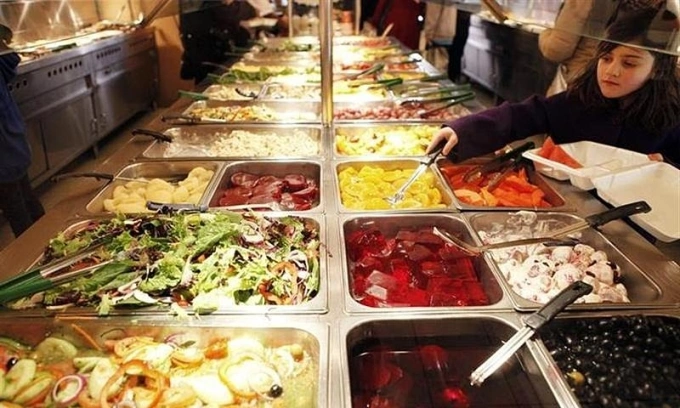筛选:
等级:
来源:
话题:
当天最新动态,24小时持续更新。来自 CNN、BBC、VOA、Inside Science 等官方新闻来源...
 1 分钟
1 分钟 UK study visa applications start to drop following post-study work rights restriction
The U.K. saw its first drop in study visa applications this year in June 2025, after the government announced in May that it would shorten post‑study work rights for international students from two years to 18 months.
Applications had been strong earlier: 18,500 sponsored study visa requests in May, up 19% year-on-year, and 76,400 from January–May, a 29% rise compared to 2024, surpassing 2023 and 2022 levels. But June data from the Home Office showed 27,900 applications, down 1.1% from June 2024.
For the 12 months ending June 2025, total applications fell to 424,900, a 7% decline from the previous year. Dependent applications also dropped sharply: only 7,900 dependents in the first half of 2025, down 28.8%, following the January 2024 ban on most master's students bringing family members.
Analysts attribute the decline to policy changes and evolving education delivery. Lisa Randall of RSM U.K. cited the expansion of the Turing scheme and offshore U.K.-accredited programs, which reduce the need for U.K. visas.
In 2023/24, the U.K. hosted 732,285 international students (23% of total enrollment), a 4% drop from 2022/23. India sent 107,500 students, followed by China with 98,400.
来源: TODAII [ 12782] 2025-07-17 07:32:58
12782] 2025-07-17 07:32:58
 1 分钟
1 分钟 China's new superfast maglev train to travel at 600 km/h
China has unveiled a new maglev train capable of reaching 600 km/h, which will cut the travel time between Beijing and Shanghai from the current 5.5 hours by high‑speed rail to just 2.5 hours.
Developed by the China Railway Rolling Stock Corporation, the train features a sleek, aerodynamic nose to reduce air resistance and futuristic interiors, as shown in footage from state broadcaster CCTV. A large video screen and modern cabin design reflect its focus on comfort and innovation.
According to Shanghai-based The Paper, the maglev will serve as a point‑to‑point transport tool linking major cities and complementing China's already vast high‑speed railway network.
Beijing offers historic landmarks such as the Great Wall, Forbidden City, and Temple of Heaven, while Shanghai is famed for its skyline, including the Oriental Pearl Tower and Shanghai Tower.
China's high‑speed rail system, already the world's largest with 48,000 km of tracks by the end of 2024, is on track to surpass 50,000 km this year, further cementing the country's leadership in next‑generation transportation.
来源: TODAII [ 3718] 2025-07-17 07:32:50
3718] 2025-07-17 07:32:50
 1 分钟
1 分钟 South Korean actress Kang Seo Ha dies at 31
South Korean actress Kang Seo Ha (born Kang Ye Won in 1994) has passed away after a long, private battle with cancer, her family announced through a heartfelt message on her Instagram on Monday. The exact type of her illness was not disclosed.
Her family's post expressed disbelief and grief, recalling how she continued caring for others despite severe pain and months of barely eating. Colleagues revealed she kept her illness hidden, remaining professional on set, filming commercials, and even completing her final movie “In the Net,” slated for release later this year.
Fans and fellow artists flooded social media with tributes, praising her strength and kindness. Kang's funeral will be held Wednesday, and she will be laid to rest at her family's burial site in Haman, Gyeongnam Province. Known for roles in Flowers of the Prison, First Love Again, and Nobody Knows, she is remembered as a radiant talent gone too soon.
来源: TODAII [ 3564] 2025-07-17 07:32:43
3564] 2025-07-17 07:32:43
 1 分钟
1 分钟 Tourist criticized for sneaking food from hotel breakfast to save on lunch
A viral post by Nicola Lewis, a British home organizer with 210,000 Instagram followers, has sparked debate after she shared a tip about taking food from a hotel breakfast buffet to use for lunch.
Lewis said she asked permission first, then packed bread, tuna, and vegetables into containers to make sandwiches, storing them in her room fridge as part of what she called an “organized saving strategy.” Her post, reported by Metro and Daily Mail, drew over 45,000 likes and nearly 2,000 comments.
Critics labeled her actions “greedy,” “cheap,” and an abuse of service, noting most buffets are strictly for on‑site breakfast. Some hotels reportedly even check guests' bags to prevent this.
Others defended her, saying they also do it to save money, especially for outings like beach trips, and that it's practical if permitted.
Hotel policies generally forbid taking buffet food away, citing food safety and hygiene rules, though some guests still find creative ways around it.
来源: TODAII [ 6732] 2025-07-17 07:32:36
6732] 2025-07-17 07:32:36
 1 分钟
1 分钟 Here's why you might be spending more on health care next year
A new Mercer survey shows that after several years of absorbing rising health care costs, more than half of U.S. employers plan to shift additional costs to workers in 2026, compared to 45% in 2025. Companies expect benefit expenses to rise nearly 6% this year and even more next year, driven by greater patient usage and AI‑assisted billing.
Employers may raise deductibles or out‑of‑pocket maximums, while still maintaining certain benefits. Coverage for costly GLP‑1 weight‑loss drugs remains common but growth is slowing; some firms may narrow eligibility or require extra documentation.
Despite cost pressures, support for mental health and family‑related benefits is growing. In 2026, 35% of employers will offer onsite counseling, up from 29%, with more sessions provided. As return‑to‑office policies expand, 54% of large employers will offer some form of child‑care help and 58% will provide elder‑care resources. About 59% will offer reproductive health support, such as lactation services or high‑risk pregnancy care.
Employees will learn details during the usual fall open‑enrollment period.
来源: CNN [ 4433] 2025-07-17 07:32:28
4433] 2025-07-17 07:32:28











